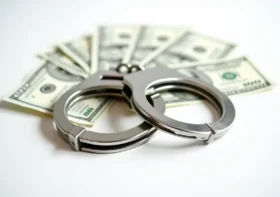How Liability Is Determined in Baltimore Motorcycle Accident Cases

Motorcycle accidents are among the most serious traffic collisions, often leading to life-changing injuries and significant financial losses. Determining who is legally responsible — or “liable” — for a crash is one of the most critical aspects of any motorcycle accident claim. In Baltimore, the process can be complex, involving multiple parties, conflicting evidence, and strict legal standards.
Whether you are a rider seeking compensation or a driver accused of causing a crash, understanding how liability is determined can make a major difference in the outcome of your case.
Contents
- 1 Understanding Fault and Negligence in Maryland
- 2 Key Elements in Proving Negligence
- 3 Common Factors That Influence Liability
- 4 The Role of Evidence in Establishing Fault
- 5 Shared Fault and Multiple Liable Parties
- 6 Insurance Companies and Liability Disputes
- 7 Why Legal Representation Matters
- 8 Final Thoughts
Understanding Fault and Negligence in Maryland
Liability in a motorcycle accident case is typically based on the legal concept of negligence. Negligence occurs when a person fails to exercise reasonable care and their actions — or inaction — cause harm to another person. In the context of a motorcycle crash, this might involve behaviors like speeding, distracted driving, running a red light, or failing to yield.
Maryland follows a particularly strict rule known as “contributory negligence.” Under this law, if an injured motorcyclist is found to be even 1% at fault for the accident, they may be barred from recovering any compensation at all. This makes proving liability and minimizing any allegation of fault absolutely essential.
Key Elements in Proving Negligence
To successfully hold another party liable, you must establish four key elements: duty of care, breach of duty, causation, and damages. First, you must show that the other driver owed you a duty to operate their vehicle safely and responsibly. Next, you must prove that they breached that duty by acting negligently — for example, by texting while driving or failing to check their blind spot.
The third element, causation, requires demonstrating that this breach directly caused the accident and your injuries. Finally, you must show that you suffered actual damages, such as medical expenses, lost wages, or pain and suffering, as a result of the crash. If any of these elements cannot be proven, liability may not be established.
Common Factors That Influence Liability
Motorcycle accident liability often depends on the specific circumstances of the crash. One of the most common causes is a driver failing to see a motorcyclist while changing lanes or making a turn. Because motorcycles are smaller and less visible than cars, drivers sometimes overlook them — but this does not absolve them of responsibility.
Other frequent causes include speeding, following too closely, and driving under the influence. Road conditions can also play a role. If a poorly maintained road contributed to the crash, a government entity might share liability. Similarly, if a defective motorcycle part caused the accident, the manufacturer could be held responsible under product liability laws.
The Role of Evidence in Establishing Fault
Evidence is the foundation of any successful motorcycle accident case. Police reports often provide crucial details, including witness statements, officer observations, and citations issued at the scene. Photographs and videos — from traffic cameras, dashcams, or bystanders — can offer visual proof of how the crash occurred.
Medical records are also essential for linking injuries directly to the accident. Expert witnesses, such as accident reconstruction specialists, can further strengthen a case by analyzing skid marks, vehicle damage, and impact points to determine how the collision unfolded. The stronger the evidence, the easier it becomes to establish liability and refute claims of contributory negligence.
Some motorcycle accidents involve more than one responsible party. For example, a distracted driver may have caused the crash, but the motorcyclist’s injuries were made worse by a defective helmet. In such cases, liability may be divided among multiple parties, each responsible for their share of the damages.
However, Maryland’s contributory negligence rule still applies. If the injured rider is found even slightly responsible, they may lose the right to compensation, even if another party was primarily at fault. This underscores the importance of building a compelling case and minimizing any arguments that the motorcyclist contributed to the crash.
Insurance Companies and Liability Disputes
Insurance companies play a major role in determining liability, but their interests are not aligned with yours. They often attempt to minimize payouts by disputing fault, downplaying injuries, or arguing that the motorcyclist’s actions contributed to the accident.
This is especially true in Maryland, where the contributory negligence standard gives insurers a strong incentive to find any evidence — no matter how minor — that the rider was partly to blame. Having legal representation can help level the playing field and ensure that your side of the story is properly presented.
Why Legal Representation Matters
Because Maryland’s liability laws are so strict, navigating a motorcycle accident claim without legal assistance can be risky. An experienced Baltimore Motorcycle Accident Lawyer can gather evidence, interview witnesses, consult with experts, and craft a legal strategy designed to prove the other party’s negligence while protecting you from unfair blame.
They can also negotiate with insurance companies, file legal motions, and represent you in court if necessary, increasing your chances of securing the compensation you deserve.
Final Thoughts
Determining liability in a Baltimore motorcycle accident is rarely straightforward. It requires careful investigation, strong evidence, and a deep understanding of Maryland’s contributory negligence laws. Even small details — such as the angle of impact or a traffic camera recording — can mean the difference between a successful claim and a complete denial of compensation.
By understanding how liability is established and working with experienced legal counsel, you can build a stronger case and improve your chances of recovering the financial support you need after a life-altering crash.



